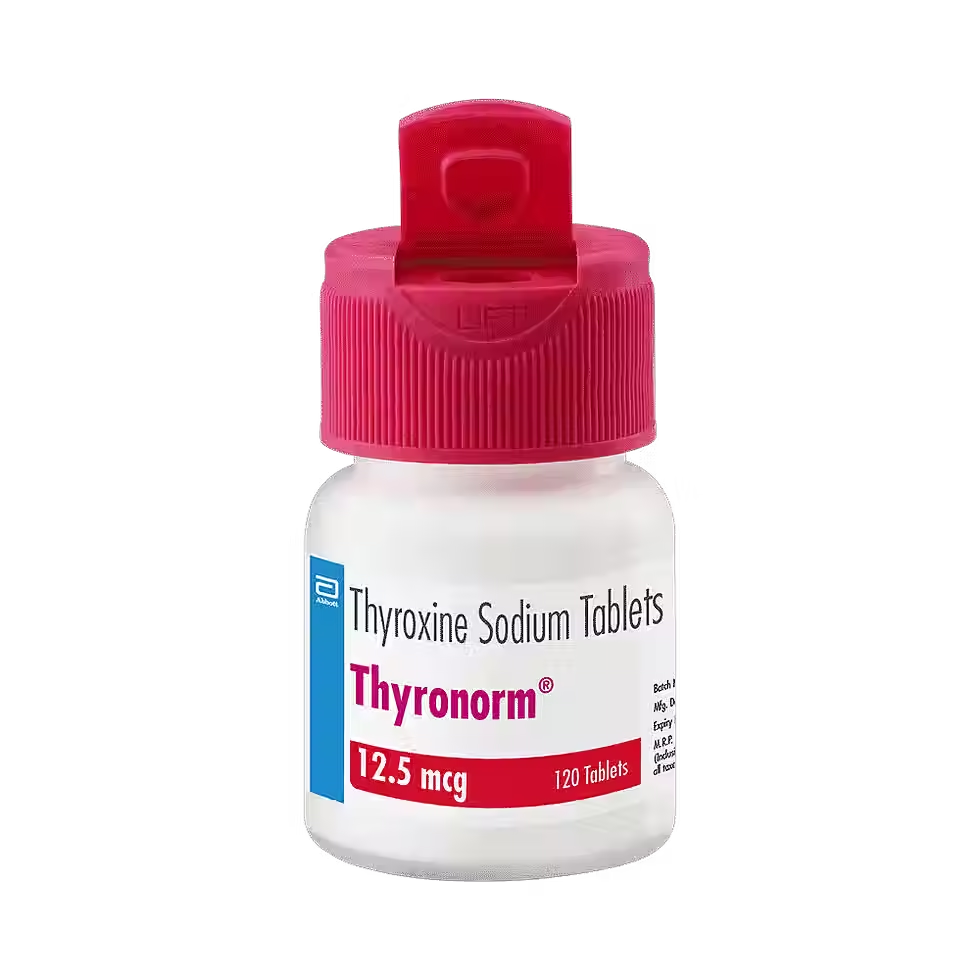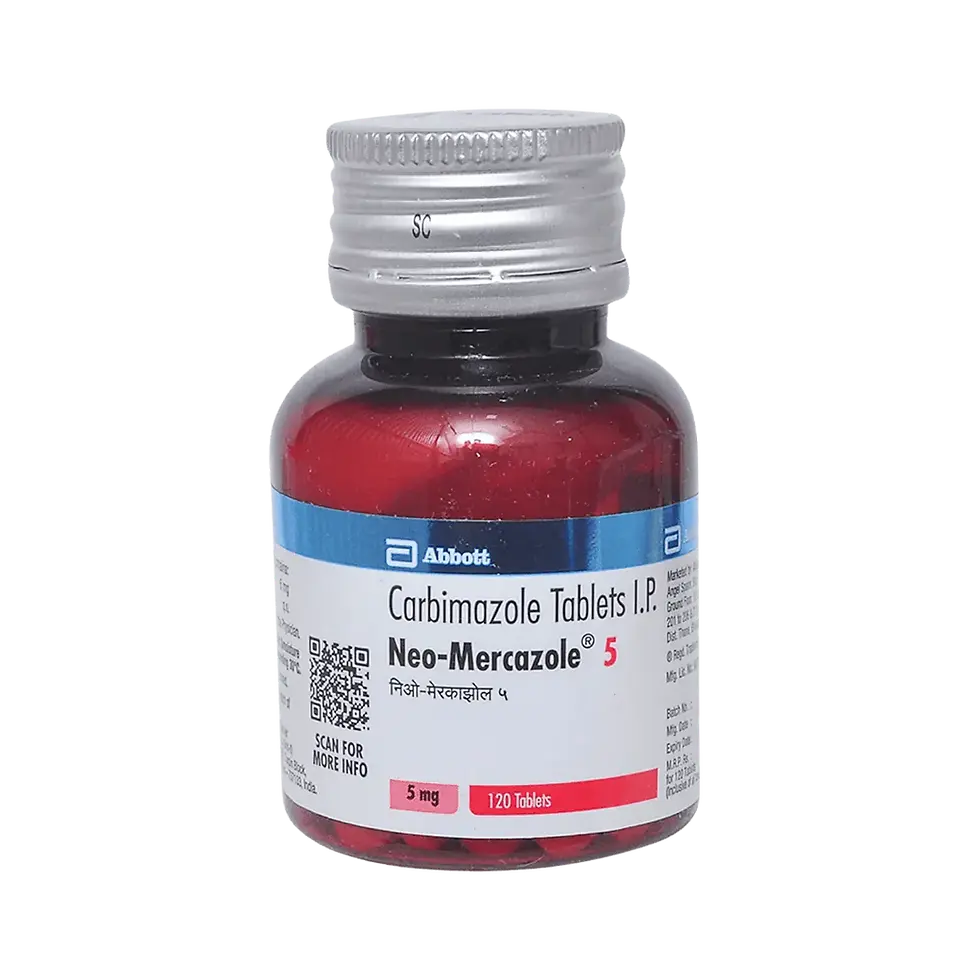Thyroid care involves monitoring and managing conditions of the thyroid gland—a butterfly-shaped endocrine organ in the neck responsible for producing hormones that regulate metabolism, energy, and growth. Proper thyroid care encompasses replacing deficient hormones, controlling excessive hormone production, and providing nutritional support to maintain balance, energy levels, and overall well‐being.
-
Hypothyroid Signs:
-
Persistent fatigue, weight gain despite unchanged diet, feeling cold when others feel fine.
-
Dry, rough skin and brittle nails; hair thinning or hair loss.
-
Constipation, muscle weakness, slowed heart rate, and low mood or forgetfulness.
-
-
Hyperthyroid Signs:
-
Unexplained weight loss with increased appetite, feeling excessively warm, and sweating.
-
Rapid or irregular heartbeat (palpitations), tremors in hands, and increased anxiety or restlessness.
-
Frequent bowel movements or loose stools, muscle weakness, and difficulty sleeping.
-
Some individuals may experience a combination of symptoms—such as cycles of fatigue followed by nervousness—when hormone levels fluctuate.
-
-
Autoimmune Conditions:
-
Hashimoto’s Thyroiditis: Immune‐mediated destruction of thyroid tissue leading to underproduction of hormones.
-
Graves’ Disease: Immune activation causing overstimulation of hormone production and gland enlargement.
-
-
Iodine Imbalance:
-
Iodine Deficiency: Insufficient dietary iodine can lead to reduced hormone synthesis and gland enlargement (goiter).
-
Excess Iodine Intake: Sudden increases in iodine from supplements or certain foods can trigger or worsen gland overactivity.
-
-
Thyroid Nodules & Structural Changes:
-
Benign nodules or adenomas may produce excess hormone or impair normal gland function.
-
Thyroid surgery, radiation exposure, or congenital variations can reduce hormone output.
-
-
Medications & Substances:
-
Certain antiseizure or anticoagulant therapies may affect hormone production or metabolism.
-
High doses of biotin in supplements can interfere with laboratory assays, leading to misinterpretation of thyroid status.
-
-
Genetic Factors & Family History:
-
A family history of thyroid conditions increases one’s predisposition to autoimmune thyroid disorders or gland abnormalities.
-
-
-
Stress & Illness:
Prolonged physical or emotional stress can alter immune function and provoke autoimmune activity, exacerbating gland imbalance. -
Hormonal Changes:
Pregnancy, postpartum period, and perimenopause can shift hormone levels and reveal latent thyroid issues. -
Dietary Variations:
Sudden high‐iodine foods (e.g., seaweed, iodized salt) may worsen overactive gland patterns; excessively restrictive diets can deprive the body of nutrients needed for hormone synthesis. -
Infections & Inflammation:
Viral or bacterial infections can cause transient thyroid inflammation (subacute thyroiditis), leading to temporary overproduction followed by underproduction of hormones. -
Abrupt Medication Changes:
Starting or stopping therapies (e.g., amiodarone, lithium) without medical guidance can precipitate gland dysfunction.
-
-
Thyroid Function Tests:
-
TSH (Thyroid Stimulating Hormone): Primary screening marker; low TSH suggests overactive gland, high TSH indicates underactive gland.
-
Free T4 & Free T3: Measure active hormone levels in the blood to confirm hyper- or hypothyroid status.
-
-
Autoantibody Panels:
-
Anti-TPO & Anti-Thyroglobulin Antibodies: Elevated levels support autoimmune thyroiditis (Hashimoto’s).
-
TSI (Thyroid-Stimulating Immunoglobulin): Positive in Graves’ disease to confirm immune‐driven overactivity.
-
-
Ultrasound Imaging:
-
Evaluates gland size, texture, and detects nodules or cysts; Doppler studies assess blood flow in cases of suspected overactivity.
-
-
Radioactive Iodine Uptake (RAIU) & Scan:
-
Measures the gland’s uptake of iodine to distinguish Graves’ disease (diffuse uptake) from nodular or subacute thyroiditis (variable uptake).
-
-
Clinical Assessment & History:
-
Detailed review of symptoms (energy levels, weight changes, temperature sensitivity), family history, and any prior treatments. Physical exam includes palpation for enlargement, tenderness, or nodules.
-
-
Hypothyroidism Management:
-
Hormone Replacement: Levothyroxine (synthetic T4) taken once daily on an empty stomach to restore normal hormone levels. Initial dosing is weight- and age-based, with periodic blood tests (TSH, free T4) every 6–8 weeks to adjust dosage. Maintaining consistent timing and avoiding biotin supplements around blood draws ensures accurate monitoring.
Hyperthyroidism Management:
-
Antithyroid Therapies: Methimazole (5–20 mg daily) or propylthiouracil (PTU 100–300 mg divided) to reduce hormone synthesis; treatment typically continues for 12–18 months, with periodic monitoring of TSH and free T4 every 4–6 weeks. Once stable, dosing may taper to maintenance levels.
-
Symptom Control: Beta-adrenergic blockers (e.g., propranolol 20–40 mg four times daily) help control rapid heartbeat and tremors while antithyroid therapy takes effect. Prednisone (10–20 mg daily) may be used short-term for subacute inflammatory thyroiditis.
Supportive Nutritional Care:
-
Selenium (100–200 mcg daily) and zinc (15–30 mg daily) support antioxidant defense in autoimmune thyroiditis.
-
Iodine Balance: Use only if dietary deficiency is documented; avoid excessive supplemental iodine without physician guidance.
Follow-up includes blood tests every 6–12 months once stable. In cases of nodules causing persistent overactivity or compression, surgery or radioactive iodine ablation may be considered.
-
Q1: How long after starting levothyroxine will I notice improvement?
Most individuals feel increased energy and reduced cold sensitivity within 4–6 weeks. Full metabolic normalization may take several months as dosage is fine-tuned based on periodic blood tests.
Q2: Can I adjust my own thyroid medication dose based on feeling better or worse?
No—self-adjusting hormone replacement or antithyroid therapy can lead to overcorrection. Always follow lab results (TSH, free T4) and physician recommendations to safely adjust dosing.
Q3: Are there specific foods or supplements I should avoid?
-
Calcium and Iron Supplements: Should be taken at least four hours apart from levothyroxine to prevent absorption interference.
-
High-Iodine Foods or Supplements: Avoid unless iodine deficiency is confirmed; excess iodine can worsen overactive gland conditions.
Q4: How often should I have thyroid function checked?
After initiating or adjusting therapy, test TSH and free T4 every 6–8 weeks until levels stabilize. Once stable, monitoring every 6–12 months is sufficient unless symptoms change or new health conditions arise.
Q5: Can pregnancy affect thyroid care?
Yes—during pregnancy, thyroid hormone needs often increase. Women with known underactive gland should consult their physician as early as possible to adjust levothyroxine dosing and ensure adequate hormone levels for maternal and fetal health.-

























